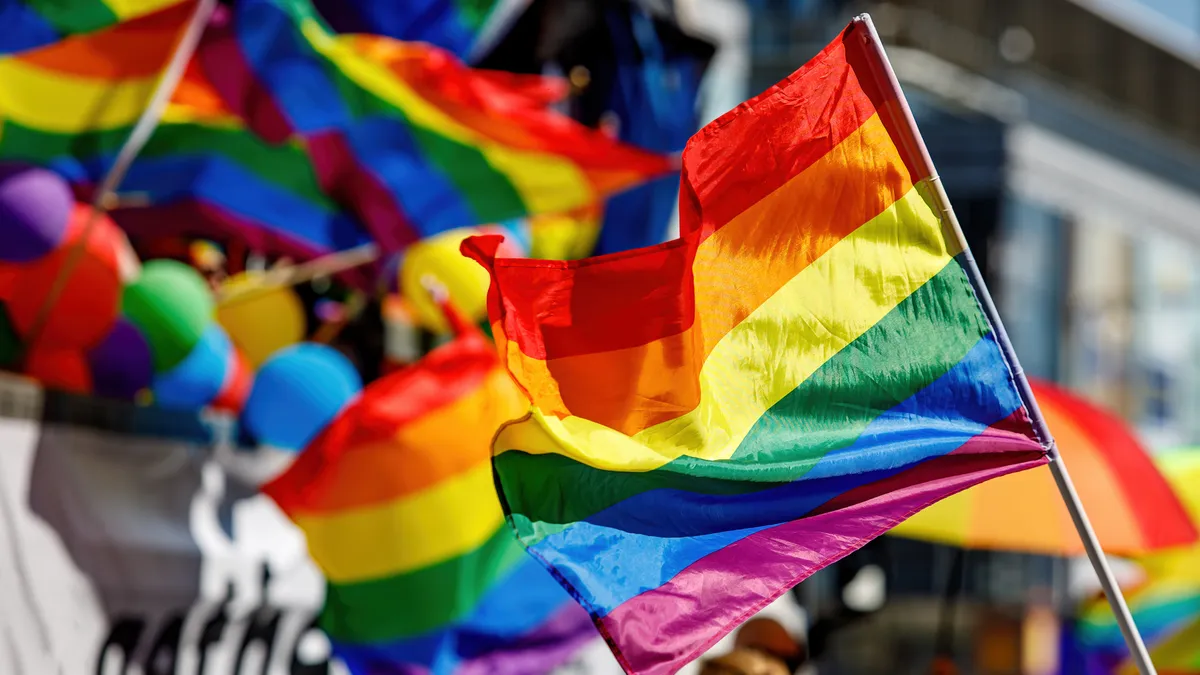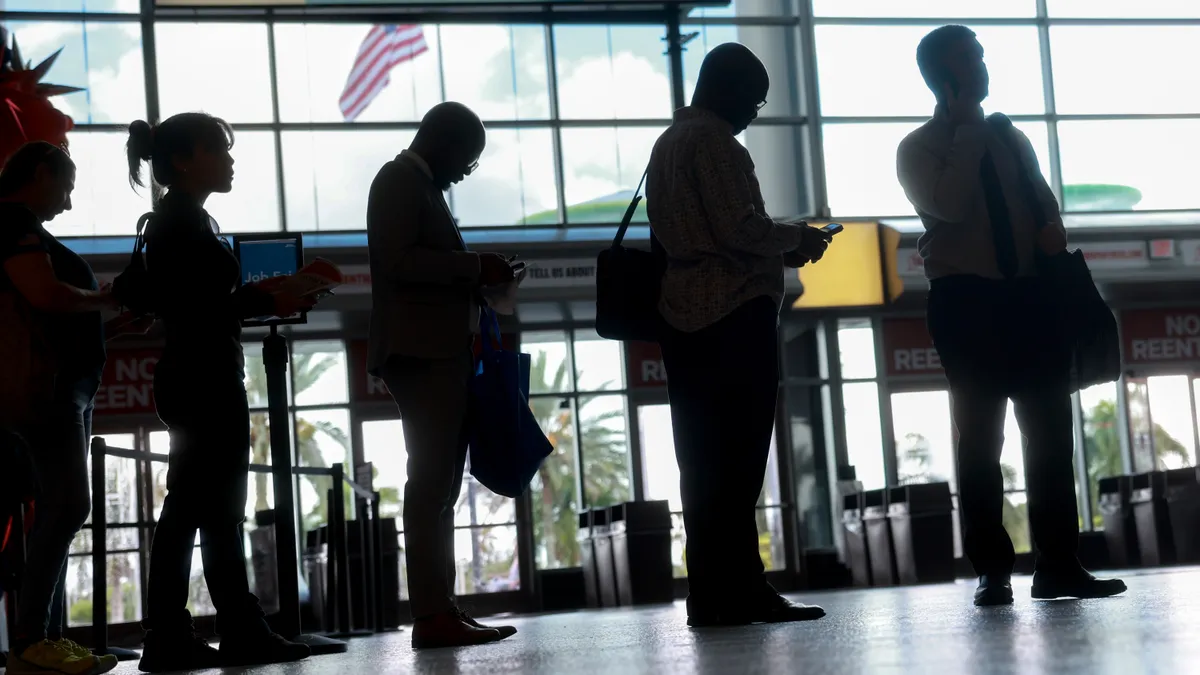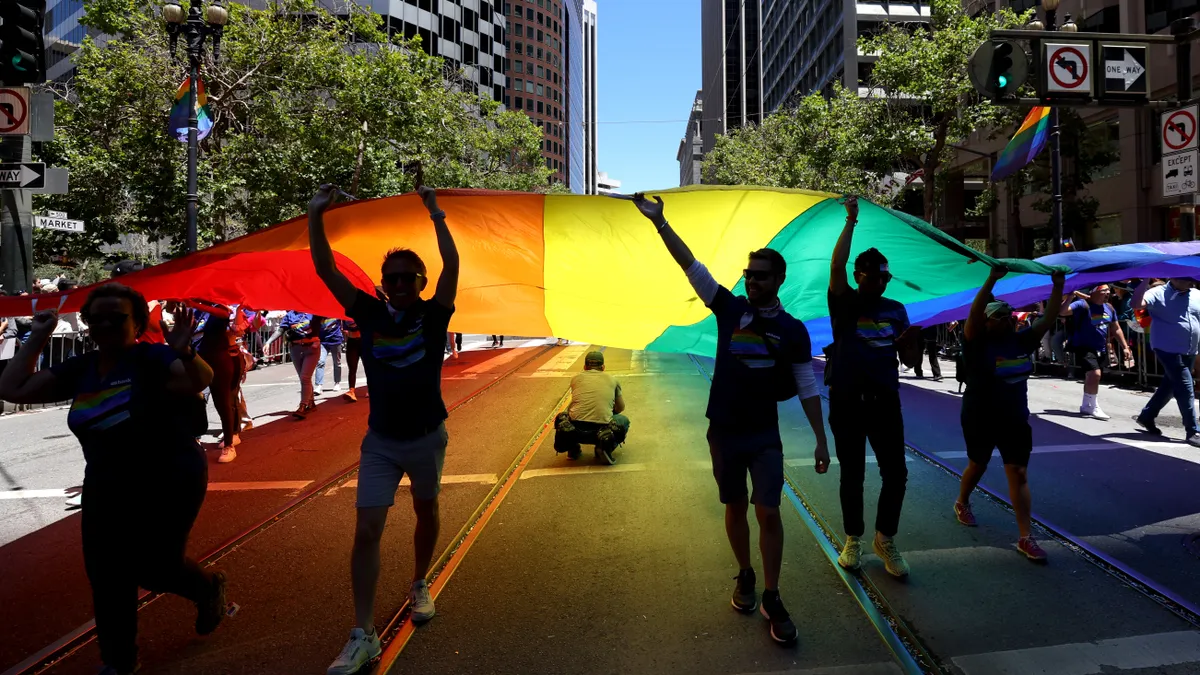In navigating the uncharted territory of compliance with President Trump's "Executive Order on Combating Race and Sex Stereotyping," some institutions have sent notices to staff on revised diversity training protocols, resulting in push back and confusion.
The executive order, signed Sept. 22, pertains to federal agencies, U.S. uniformed services and recipients of federal grants. It prohibits "divisive concepts" in diversity training programs such as systemic race and sex discrimination and implicit race and sex biases. The requirements for government contracts with federal contractors and subcontractors went into effect Nov. 21, according to the Office of Federal Contract Compliance Programs (OFCCP).
Already, the order has triggered contention at institutions. At Stanford University, Provost Persis Drell addressed controversial guidance on diversity training that human resources sent in a memo Nov. 13 to Stanford managers, which was obtained by The Stanford Daily, an independent, student-run newspaper. The guidance included a checklist with examples of prohibited topics such as structural or systemic racism, implicit bias and White privilege. The memo also specifically prohibited phrases like "You should affirmatively/actively try to help Black staff." The checklist was "posted without receiving the necessary review and approval," and it was removed, Drell wrote in a Nov. 18 letter to the university community.
"The checklist conveyed the opposite of what we seek to convey to our community about the need to squarely confront racism and ensure a university culture in which everyone truly can thrive," she said. "We, along with our peers, will continue to advocate against policies that could inhibit our efforts to advance diversity and inclusion. We are hopeful that the order itself will be rescinded by a new administration."
At the University of Memphis, faculty and staff pushed back in October when the Office of Institutional Equity sent a message largely recommending such trainings be "suspended" for the fall semester, according to local reports. The university's external affairs office forwarded HR Dive a message President M. David Rudd sent faculty and staff to address the uncertainty.
"A communication from our Office of Institutional Equity raised a number of questions and concerns," Rudd said. "Let me assure you that any work on equity, diversity, inclusion, unconscious bias, multi-cultural sensitivity training and our initiative on eradicating systemic racism and promoting social justice will continue uninterrupted. I am confident in our ability to continue these critical efforts and adhere to appropriate federal/state laws and all applicable university policies, while embracing a firm commitment to our core values." HR Dive asked a university representative when Rudd's email was sent but did not receive a reply.
The NAACP Legal Defense and Educational Fund (LDF) has called the order "unconstitutionally vague" and filed a lawsuit Oct. 29 to have it rescinded. The LDF has "every hope" the Biden administration will repeal the executive order, but it will continue to pursue litigation until the order "is fully rescinded," Jin Hee Lee, senior deputy director of litigation at LDF, previously told HR Dive.
Ted Mitchell, president of the American Council on Education, penned a letter Nov. 18 to Biden and Vice President-elect Kamala Harris on behalf of 46 higher education groups, which asked for the executive order to be repealed. "Needless to say, colleges and universities are totally opposed to race and sex stereotyping, but the [executive order] is sweepingly overbroad and has chilled the implementation of critical diversity training programs that ensure more respectful and productive work and learning environments," the letter stated. It is likely Biden will rescind the order "soon after Inauguration Day," according to a Littler report on the 2020 presidential election.
Should companies take caution or stay the course?
"Race or sex stereotyping or scapegoating" in a diversity training program "or employment generally, may also violate the affirmative and nondiscrimination obligations of Executive Order 11246," which prohibits federal contractors for discriminatory practices in hiring and employment, according to OFCCP. To this end, the agency has questioned the hiring practices of Microsoft and Wells Fargo. The order has also cast a chilling effect on diversity training at some companies, Lisa Rice, president and CEO of The National Fair Housing Alliance, said during a press conference Oct. 29. The organization had a "number of very clandestine, confidential conversations with industry stakeholders who are concerned about negative fallout" if they proceed with recently created racial equity initiatives, Rice said. The U.S. Chamber of Commerce has also urged the president to withdraw the executive order.
But some companies plan to stay the course in increasing diversity, inclusion and equity initiatives. "I think that this is really an opportunity for companies that are not covered by the order to continue their efforts and not to be dissuaded," Jennifer McGlinn, general counsel at Power Home Remodeling, a full service exterior home remodeling company located in Chester, Pennsylvania, told HR Dive. "We're not a federal contractor or a subcontractor. We don't really receive federal funding like a college would. [The executive order] hasn't changed how we plan to handle our culture, diversity and inclusion and training program. Some companies are deciding that they're going to pull back or change their approach. We have not taken that approach."
McGlinn helped spearhead Power Home's Strive for 35 referral bonus launched in September, with a goal to have racial or ethnic minorities, or LGBTQ+ individuals account for 35% of the pool of candidates. The program is modeled after a 2019 referral initiative to increase the number of women in the company's workforce, which is now at 15.7% representation. Approximately 79 employees have received the women's referral bonus, according to Power Home. Historically, the construction and remodeling industry has not been inclusive in regard to race and gender.
"We believe that it's important to continue to embrace really robust programs that allow underrepresented groups to tell their stories and their experiences, and have their voices heard," McGlinn said. The company recently launched employee resource groups, invited guest speakers during Hispanic Heritage Month and is making plans for Black History Month events, McGlinn said. But as the company goes forward with diversity programs and training, "I recognize that there might be some employees who might have a different opinion of the training," she said. "I look at that as more of a teaching moment," McGlinn added. "We all have to take a deep look at ourselves and address some of the beliefs and the biases, conscious or unconscious, that we hold," in an effort to make changes, she said.




















